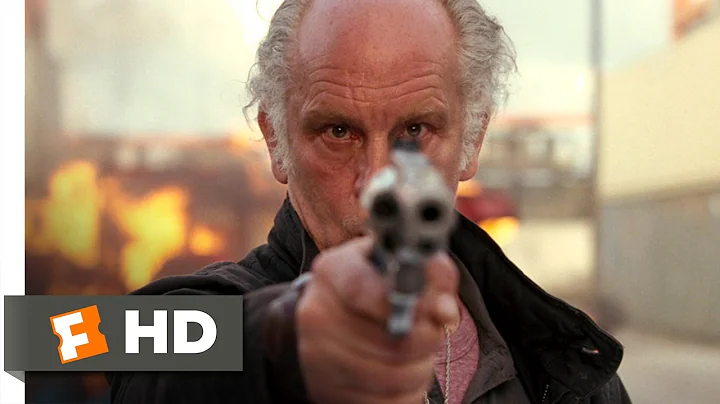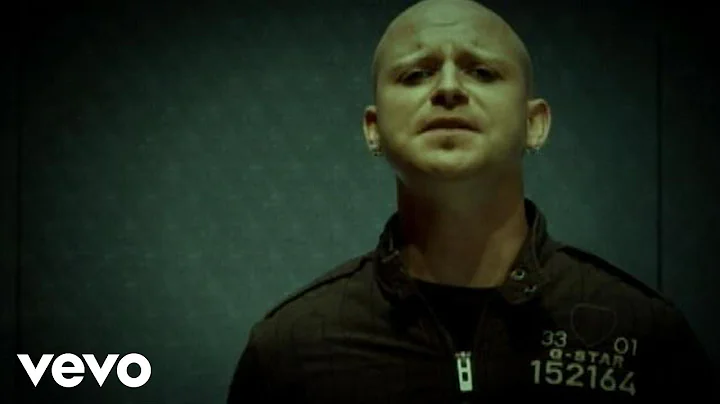Speaking of the rich in the Qing Dynasty, people usually think of the corrupt official He Shen and the "red-top businessman" Hu Xueyan. But in front of Wu Bingjian, they would be overshadowed. This descendant of Wu Zixu was not only the richest man in China at the time, but also the richest man in the world at that time. He owns one of the largest companies on the planet-Jardine House, and also leads the largest chamber of commerce on the planet-Guangzhou Thirteenth. Instead, he transcended provincial boundaries, integrated upstream and downstream industries, and launched a series of businesses The global business hegemon who innovates and dominates the international trade market.
In 2001, the American "Wall Street Journal" counted the 50 richest people in the world in the past 1000 years, including Bill Gates and other contemporary giants. 6 Chinese were selected, They are Genghis Khan, Kublai Khan, He Shen, Liu Jin, Wu Bingjian and Song Ziwen. The Chinese who made the "Millennium Rich" list did not have Hu Xueyan, a representative of Huizhou merchants. Five of them were big figures who possess wealth through power. Only Wu Bingjian is a real businessman. The Wall Street Journal said that he is' The world’s largest commercial asset, the world’s richest man’".

Introduction to Wu Bingjian in the Shisanxing Museum in Guangzhou
In the economic history written by Western scholars, "Wu Haoguan" (Howqua) is a prominent name, even mentioned in Marx's works. "Wu Haoguan II", whose real name is Wu Bingjian, has dominated the international trade market for more than 30 years from the end of the 18th century to the beginning of the 19th century. It has achieved the same brilliance as his peers Napoleon I and Duke of Wellington.
"How much money does Wu Haoguan have is a topic often debated by everyone." "American businessman Hunter wrote in the book "Guangzhou Fanguilu": "In 1834, once, Haoguan estimated his various properties, houses, shops, silver accounts, and goods shipped to Britain and the United States. A total of about 26 million silver dollars. " It turns out that this widely quoted data was actually estimated by Wu Bingjian himself, which is equivalent to 18.72 million taels of silver. This means that his family property is one-third of the Qing government's annual revenue of 40 million taels of silver. This is enough for him to surpass the richest man in Europe, Rothschild, and Astor, the richest man in the United States, to become the richest man in the world.

The scene painted before the thirteenth line in Guangzhou was burned in 1856
However, businessmen have at least two books in their minds, one for the public and the other for the private. Wu Bingjian is no exception. Many Chinese businessmen who are familiar with Wu Bingjian at the same time believe that his property is much more than that. Pan Shicheng, a wealthy businessman from the Wu family, later told the American businessman Hunter that his own property was by no means as much as the legendary "100 million francs", but he also had "equivalent to one-third of Wu Haoguan's property, namely Slightly more than twenty million silver dollars. "In other words, Pan Shicheng estimates that Wu Bingjian’s fortune is not 26 million silver dollars, but more than 62 million silver dollars, which is approximately 50 million taels of silver, which is more than the combined assets of Rothschild in Europe and Astor, the richest man in the United States. Even more, more than the fiscal revenue of the Qing government for one year, which can be called a "wealthy country".
Sitting on such a huge commercial wealth, Wu Bingjian has left a lot of mystery to the world. And traditional portrait painting Unlike the British oil painter Channery, Wu Bingjian only reveals three-quarters of his face: this old man with a sharp chin and sunken cheeks has a serious, introverted and restrained look. The sitting posture with his legs overlapped is conveyed. It has an elegant western style. It is not only Wu Haoguan’s personal business card, but also a microcosm of an era and a symbol of a distinguished family.

伍秉鉴写真
Wu Bingjian, also known as Wu Dunyuan Born in Fujian, he is a descendant of Fanganhai, the Wu family in Putian, Lingnan. He was born in Guangzhou. His father Wu Guoying (No. Xiuting) used to serve as the accountant of the Pan family’s Tongwenxing. After that, the wings were plump and made a new start. He opened Yihe in 1784. After the death of his father, Wu Bingjian inherited the family business and became the owner. "Anhai Wu Genealogy" contains: "Jianchang first served as a public official in the Song Dynasty, and traveled to Fujian in the south to live in Putian. The source of the sea moved to Jinjiang, and his family was safe. The Tenth Dynasty Feng Gong from Fujian to Guangdong, Kangxi was originally from Nanhai. Up to now, the tenth generation of Xingting's official business carnival created the Yihe Foreign Company, with the third son Bingjian as the merchant, and he was promoted as the leader of the line. "This young "rich second generation" brought out the "three axes" of managing officials, acquainting with foreign businessmen, and uniting business, and boarded the forefront of China's foreign trade, making the Wu family's career rapidly rise and becoming a Guangzhou ten. The beginning of the three lines.

The Wu Family Ancestral Hall in the Wujia Garden
In addition to the contacts accumulated by shrewdness and integrity, Wu Bingjian also has sufficient hard power. He understands English, very good at mathematical calculations, pay attention to absorbing new knowledge, is one of the most prestigious tea connoisseurs. In terms of management, he has established close ties with important customers in Europe and the United States, and relies on advanced management concepts in foreign countries. The rapid rise in trade. At that time, his commercial bank had the closest connection with foreign businessmen, and he could find sources in the British East India Company, retail and American businessmen. He was also the "banker" and largest creditor of the British East India Company.
Among them, it is especially worth mentioning that Wu Bingjian, who is called the "Godfather" by foreigners, has a unique eye and spares no effort to fund the United States through preferential trade, and cultivate the "first people who get rich first" for the United States. John Forbes I came to China at the age of 17, and just started to make a living by reselling tea. By chance, I met Wu Bingjian and recognized him as a godfather. He also served as his confidential agent and personal secretary. With the funding of Wu Bingjian , Forbes specialized in railway construction and became famous in one fell swoop, becoming a super railroad tycoon. Wu Bingjian had personally tore up the US businessman Astor owed him 72,000 taels of silver and gave him 50 taels of silver, allowing him to return home with confidence . After returning to China, Astor made a comeback and became the richest man in the United States , and later became one of the most famous victims of the Titanic. In his study, there are always portraits of Washington and Wu Bingjian, . One thing he often said is: Washington gave me a country, and Wu Bingjian gave me all my life.

The old appearance of Wujia Garden, the original is now in the Forbes Family Museum
Wu Bingjian is rich in the world, and at the same time, he is also a recognized philanthropist. According to the "An Hai Wu Family Tree": "In Jiaqing, An Hai Wu has the richest material resources. Fansangyuanwei and Dashiwei donated three to four hundred thousand yuan for the small one, five to six million yuan for the big one, and Xu [both] gave it to Yihexing. In addition to the [year-end] family treasury verification every year, it is always surprising [more]. According to information, from 1801 to 1843, the Wu family donated 1.6 million taels in various names, "donating to be the crown of the country".
After Wu Bingjian passed away and returned, his fifth son Wu Chongyao took over. Wu Chongyao, His name is Ziyuan, and his business name is Wu Shaorong. In his business activities, he paid particular attention to holding shares in foreign companies and became a major shareholder of American Merchant Qichang International. He carried out a wide range of activities in the political and economic fields and became a feudal official merchant to a comprador merchant. Typical representative of the period.

London Pictorial, Wu Bingjian’s private garden
China Zhigong Publishing House published "The Wealth Life of Wu Bingjian, the World's Richest Man in the Qing Dynasty" in 2010, and the editor is recommending it At the time of the book, praise Wu Bingjian is "a man who is well versed in traditional Chinese wisdom and tactics, a wealthy businessman who has never met before, and a "red-top businessman" who is more legendary than Hu Xueyan" , and full of passion Wrote: "He has a large family of 500 servants. The Wu family mansion on Xixia Street on the south bank of the Pearl River is magnificent and is said to be comparable to the Grand View Garden in "A Dream of Red Mansions." He once personally tore up an IOU of 72,000 taels of silver owed to him by an American businessman. A well-known reputation in the Americas for half a century; not only owns real estate, real estate, tea hills, shops and huge sums of money in China, but also invests in railroads, stocks and insurance businesses in the United States, creating a veritable multinational consortium In the eyes of foreign businessmen, he is the incarnation of wealth. His business name is'haoguan', which was a resounding name in the international business community in the early 19th century, so that the first merchant ship in the United States was crowned'haoguan'. No.'s name is proud. ”

Group photo of the descendants of the Wu family (the fifth from the left is Wu Lingli)
According to Wu Lingli, the eighth generation descendant of Wu Bingjian and vice president of the Guangzhou Thirteenth Lines Cultural Promotion Association, after the outbreak of the Opium War, Wu Bingjian The international trade of the United Kingdom went downhill amid the British gunfire. According to reports, he was even willing to donate 80% of his property to the government in his later years, only to ask the government to allow him to end the trip to Jardine and spend his old age in peace, but was not approved. As the war was approaching, Wu Bingjian actively raised funds to build fortresses, war ships, and artillery. Even so, the Qing government was still defeated across the board. After the signing of the "Nanjing Treaty" that humiliated the country, the Qing government ordered the merchants to repay 3 million silver dollars in foreign debts in 1843. Wu Bingjian took the initiative to assume 1 million silver dollars and solved the government's major problems. The imperial court was overjoyed and specially rewarded him with the top three products to show his praise.
Neither the Wanguan family property nor the third-class top wear can make Wu Bingjian settle down in the cracks between the Qing Dynasty and European and American powers. The Opium War pushed his fate to the extreme. In 1843, the 74-year-old Wu Bingjian passed away in Wujia Garden, Guangzhou. Lingnan celebrity Tan Ying, who once participated in the "Public Car Letter", wrote the tombstone inscription: "The court list is a jade edict, the emperor is called the home of loyalty and righteousness; the minister is the commoner, who is in the ups and downs."






![Red Hot Chili Peppers - By The Way [Official Music Video] - DayDayNews](https://i.ytimg.com/vi/JnfyjwChuNU/hq720.jpg?sqp=-oaymwEcCNAFEJQDSFXyq4qpAw4IARUAAIhCGAFwAcABBg==&rs=AOn4CLBYzWFzNGh0_HsYSahU2MJUFAUQig)



![Red Hot Chili Peppers - By The Way [Video] - DayDayNews](https://i.ytimg.com/vi/YXdOAUKCc0k/hq720.jpg?sqp=-oaymwEcCNAFEJQDSFXyq4qpAw4IARUAAIhCGAFwAcABBg==&rs=AOn4CLBFeolA0hT3Xln5oYYhJdsib7A1pA)










